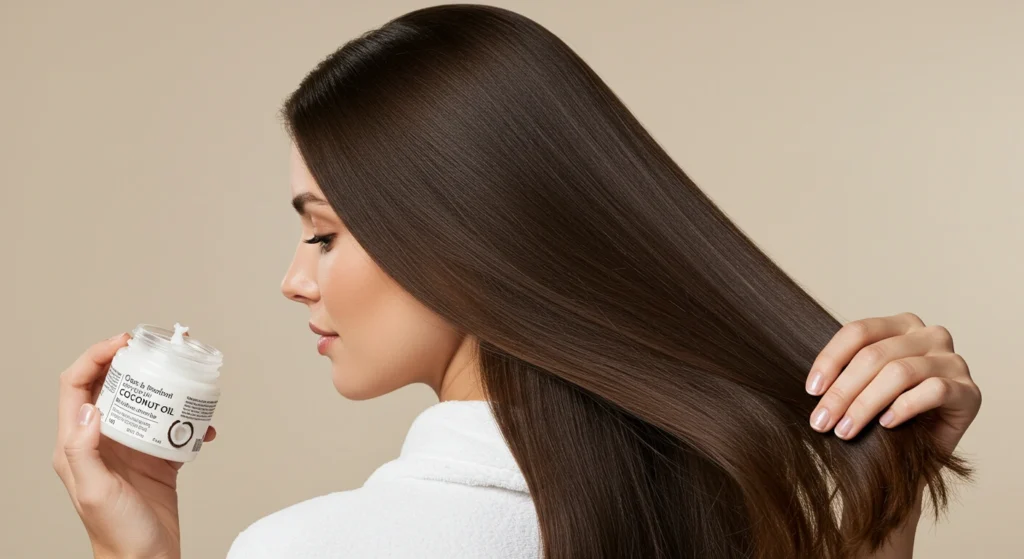Is dandruff contagious? This question is one of the most common hair care concerns people have when dealing with those pesky white flakes. Dandruff, a condition that affects millions worldwide, can cause embarrassment and self-consciousness, especially when flakes become visible. Despite how widespread it is, misconceptions about its causes and whether it can spread from one person to another persist.
In this comprehensive guide, we’ll answer the pressing question, “Is dandruff contagious?” We’ll explore its causes, debunk myths, and provide actionable solutions to manage it effectively. If you’ve ever been curious about dandruff or worried about its transmission, keep reading—you’re in the right place.
Table of Contents
What is Dandruff? Understanding the Basics
Before diving into the myths, let’s get to the root of the issue: what exactly is dandruff? Many mistakenly associate it with poor hygiene, but this couldn’t be further from the truth. Dandruff is a common scalp condition characterized by flaking and irritation, and it can affect anyone—regardless of how often they wash their hair.
Causes of Dandruff
Dandruff occurs when the natural processes of your scalp are disrupted. Here are the primary factors:
- Fungus Overgrowth: Malassezia, a naturally occurring fungus, can multiply excessively under certain conditions, leading to scalp irritation and flaking.
- Scalp Conditions: Seborrheic dermatitis, eczema, and psoriasis are common culprits behind dandruff-like symptoms.
- Oil Imbalance: An oily scalp can contribute to fungal growth, while a dry scalp may cause flaking.
Symptoms to Watch For
If you’re unsure whether your scalp issues are dandruff-related, keep an eye out for these telltale signs:
- Persistent flaking, often white or yellowish in color.
- Scalp itchiness or irritation.
- Red or inflamed patches on the scalp.
Is Dandruff Contagious? Myths and Facts
Now, let’s address the big question: is dandruff contagious? The short answer is no—dandruff isn’t something you can catch from another person. However, myths about its spread persist, making it essential to separate fact from fiction.
Debunking Common Myths
You’ve probably heard someone claim:
- “Sharing combs or hats causes dandruff.”
- “Touching someone’s flaky scalp will spread dandruff to you.”
These ideas are rooted in misinformation. While sharing personal items can transfer oils or product residue, it doesn’t lead to dandruff. This condition is tied to your scalp’s internal health, not external contagions.
Scientific Explanation
Dandruff results from an individual’s response to Malassezia fungus or scalp conditions—not from direct contact. Everyone has Malassezia on their skin, but only some experience overgrowth that triggers dandruff. It’s your scalp’s unique reaction to this fungus that determines whether you’ll develop flakes.
Factors That Can Make Dandruff Worse
While dandruff isn’t contagious, certain environmental and lifestyle factors can exacerbate it. Being mindful of these triggers can help you manage symptoms more effectively.
Environmental Triggers
- Cold Weather: Dry air during winter can irritate the scalp.
- Humidity: Excess moisture in the air promotes fungal growth.
- Pollution: Dirt and debris in the environment can clog hair follicles, worsening dandruff symptoms.
Lifestyle Habits
- Poor Diet: A lack of essential nutrients like zinc, biotin, and omega-3s can contribute to an unhealthy scalp.
- Stress: Chronic stress weakens your immune system, making you more susceptible to scalp irritation.
- Product Overuse: Heavy styling products can build up on your scalp, trapping oil and encouraging fungal growth.
How to Treat and Manage Dandruff
Dandruff doesn’t have to be a lifelong struggle. With the right treatments and habits, you can reduce flakes and restore your confidence.
Over-the-Counter Treatments
Many products are specifically designed to combat dandruff. Look for these active ingredients:
- Zinc Pyrithione: Reduces fungal growth and soothes irritation.
- Salicylic Acid: Helps remove excess flakes and exfoliates the scalp.
- Ketoconazole: A potent antifungal agent found in medicated shampoos.
Natural Remedies
Prefer a natural approach? Try these options:
- Coconut Oil: Moisturizes the scalp and combats fungal overgrowth.
- Tea Tree Oil: Known for its antifungal and antimicrobial properties, it’s an excellent option for scalp health.
- Aloe Vera: Helps reduce inflammation and itchiness while promoting skin repair.
Daily Habits for Scalp Care
- Wash Regularly: Keep your scalp clean to prevent product and oil build-up.
- Choose Gentle Products: Harsh shampoos can strip the scalp of its natural oils, leading to further irritation.
- Stay Hydrated: Drinking enough water helps maintain your scalp’s moisture balance.
FAQs: Addressing Common Concerns
Still have questions about dandruff? Here are answers to the most frequently asked questions about this condition.
1. Is dandruff contagious?
No, dandruff is not contagious. It’s caused by internal factors like scalp health and fungal activity, not by physical contact with others.
2. Can sharing combs spread dandruff?
While sharing combs may transfer oil or debris, it won’t spread dandruff since the condition isn’t infectious.
3. Is dandruff a sign of poor hygiene?
Absolutely not! Even people who wash their hair regularly can develop dandruff due to factors beyond their control.
4. How can I prevent dandruff?
Maintain a healthy scalp by using appropriate shampoos, eating a balanced diet, and managing stress effectively.
5. What’s the difference between dry scalp and dandruff?
A dry scalp results from a lack of moisture, while dandruff often involves excess oil and fungal activity.
Conclusion: Myths Debunked, Facts Embraced
By now, you should have a clear understanding of the question, is dandruff contagious? It’s not. This common scalp condition stems from personal factors like fungal imbalances and scalp sensitivity. Armed with accurate information and the right strategies, you can confidently manage dandruff and enjoy healthier hair.
Ready to take the first step? Try a specialized shampoo, incorporate natural remedies, or consult a dermatologist if symptoms persist. Share this article with friends to help bust the myths and spread awareness—not flakes!





